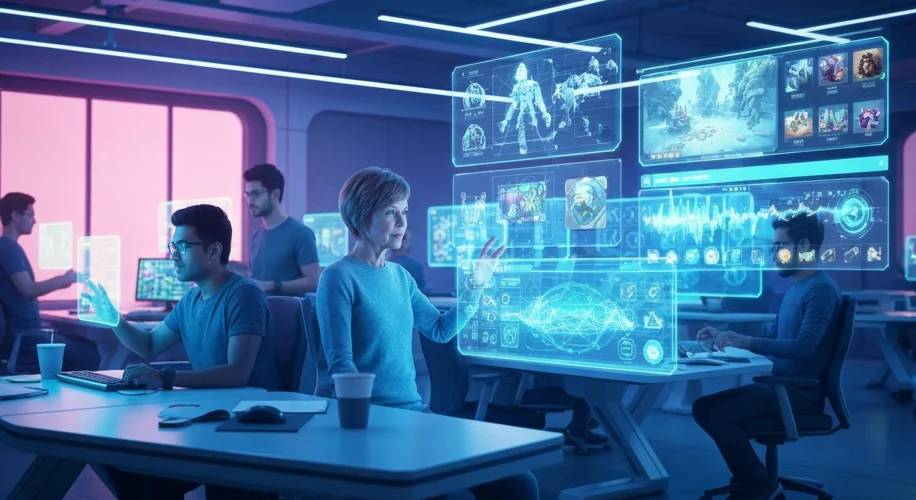Okay, so hear me out… the way we make and play games is changing, and generative AI is right at the center of the debate. If you’re into gaming or just keeping an eye on tech, you’ve probably heard the buzz, and it’s getting louder.
What’s Happening?
Developers are starting to use generative AI tools in some seriously cool ways. Think AI helping to create textures, level designs, and even writing dialogue. For example, some studios are experimenting with AI to speed up the process of generating background assets, which can be super time-consuming. This isn’t about replacing human creativity; it’s often about giving developers more time to focus on the core gameplay and polish.
The Big Questions
But here’s the catch – it’s not all smooth sailing. We’re seeing some real concerns pop up, especially from developers and voice actors. One big worry is about job displacement. If AI can generate assets faster and cheaper, what does that mean for artists and designers? Then there’s the whole issue of AI being trained on existing art and voice performances without explicit consent or compensation. Voice actors, for instance, are concerned that their unique vocal styles could be replicated by AI, impacting their livelihoods.
There’s also the question of ownership and copyright. If an AI creates a character or a piece of music, who owns it? The company that built the AI? The developer who used it? The artist whose work it was trained on? These are complex legal and ethical questions that are still being worked out.
Revolutionizing Gameplay?
On the flip side, the potential for AI in gameplay itself is pretty wild. Imagine non-player characters (NPCs) that aren’t stuck on a scripted loop. Generative AI could allow NPCs to have truly dynamic conversations, adapt their behavior based on your actions in real-time, and even create emergent storylines. This could lead to incredibly unique and personal gaming experiences that feel truly alive.
Think about games where the world genuinely reacts to your choices, or where every playthrough offers completely different interactions with characters. This kind of adaptive gameplay could be a huge leap forward, making games feel more immersive and replayable than ever before.
Where Do We Go From Here?
This debate is far from over. As AI technology continues to advance, its integration into the gaming industry will only grow. It’s exciting to think about the possibilities, but it’s also crucial that we address the ethical concerns and find ways to ensure that these advancements benefit everyone involved – creators, developers, and players alike.
I’m genuinely curious to see how this all shakes out. What are your thoughts on AI in gaming? Let me know in the comments!

